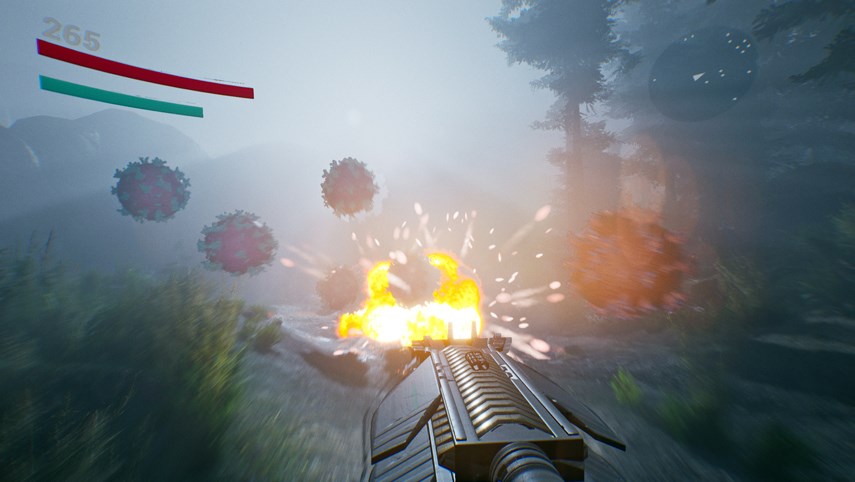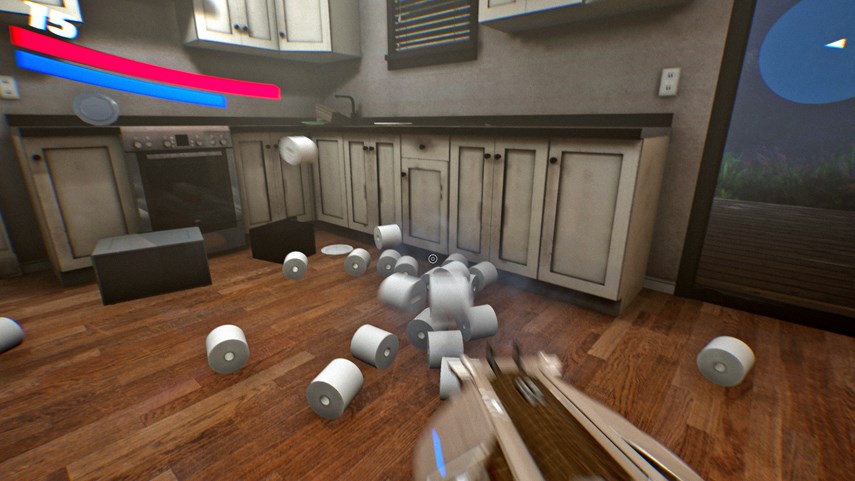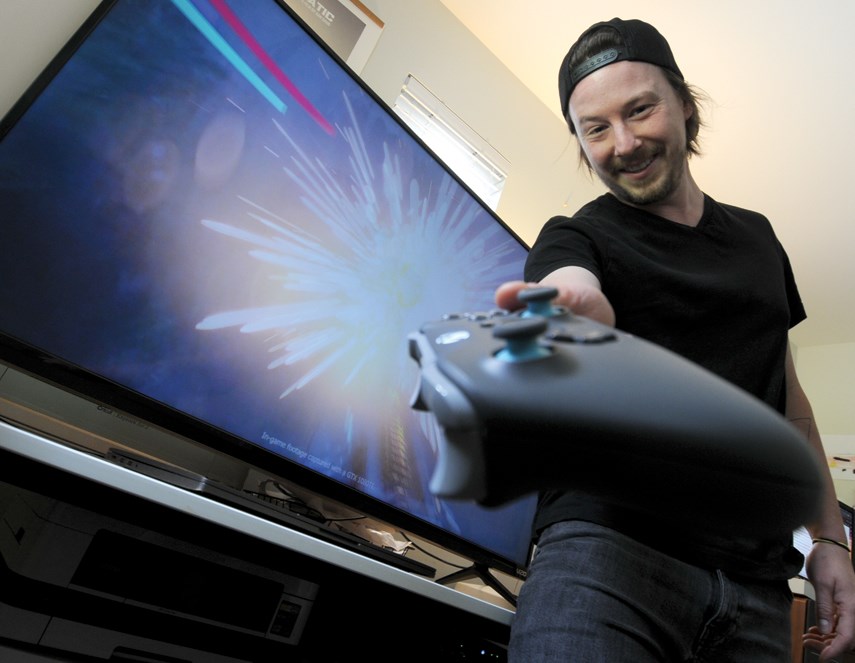A North Vancouver visual effects developer has created a ridiculous game for a ridiculous time.
Fast-paced, hyper-kinetic and often gravity-defying, Operation COVID-19 is big and brash and full of bombast, the kind of button-masher that’ll get your heart racing and sharpen your senses after a short spell in its gorgeously rendered game world, one that’s often horrifying and hilarious in a single measure.
It was developer and creative director Dan Gaud’s first attempt at making a video game.
“I wanted to learn something new. It was the perfect time,” Gaud tells the North Shore News. “It fired up my brain cells a little bit.”
Formerly based in Quebec, Gaud moved his visual effects studio, Super Nice, to North Vancouver a few years ago in a bid to get closer to the mountains, the trees and the robust local film industry.
As a veteran visual-effects artist and commercial director, Gaud’s professional experience has mainly been in the film and television industry where he’s helped add that little something extra to render the fantastical into something believable and beautiful in a production.
But like many creative professionals during the era of the pandemic, the work dried up.
Gaud found himself at home with his family, ruminating with lots of ideas in his head and plenty of time on his hands.

He started playing around with Unreal Engine – a complex but free to use real-time 3D game engine which developers have used for decades as a foundation when building some of the world’s biggest ever video games, from role-playing adventures to shoot ’em ups.
“Anyone can use it, you just have to learn it,” he insists.
He admits he’s not much of a gamer these days – he bought the latest Zelda game a few years ago but has only explored about a quarter of the Kingdom of Hyrule in that time – but he became fascinated with the mechanics of building one, of learning a layering of programming and engineering that was already tangentially related to his field, but remained alien to him.
And while there’s no aliens to do battle against in Gaud’s game, the enemy is something much more topical – and, in its proximity to real life, much more insidious.
When the player is dropped into the game world, which includes a house and a lush forested area, they will immediately find themselves under siege by a physical manifestation of the COVID-19 virus while a 1980s-inspired synth soundtrack pulsates in the background.
Gaud searched online for a concrete image of the novel coronavirus – you know the image, it’s one of the many we’ve been seeing for months that shows the spherical particles of the virus under the hum of an electron microscope – and decided the game’s core conceit would be that the malicious virus would come after the player in waves, and in turn they must jump, dodge and shoot their way out of it.

“It reminds me of the old arcade games,” he says.
To add some levity to the situation – and to forgo much of the violence that’s so common in the often mindless first-person shooter genre – the guns in Gaud’s video game don’t fire bullets.
Instead, the player’s ammo is inspired by one of the enduring images from the last few months, one glimpsed countless times in person or while scrolling social media as panic erupted and people took stock of their lives and their pantries.
“Instead of shooting bullets and being very gory, it shoots toilet paper,” says Gaud, with a laugh. “I wanted everything to be over-the-top nonsense.”
Gaud didn’t develop Operation COVID-19 in order to make a ton of money (he’s selling digital editions of the game online – available on PC, Android devices and coming soon to iOS – for a dollar) or to pivot his business into some new uncharted territory.
Like many during the ongoing pandemic, making a video game was just an opportunity to learn something new and maybe help others let off some steam and rack up some high scores in the process, he says.
“I wanted to make something visual that you can throw your frustration at, in a way. The virus is microscopic, it’s not tangible, so I kind of made it a visual representation,” he says. “It’s like a virtual stress ball.”



